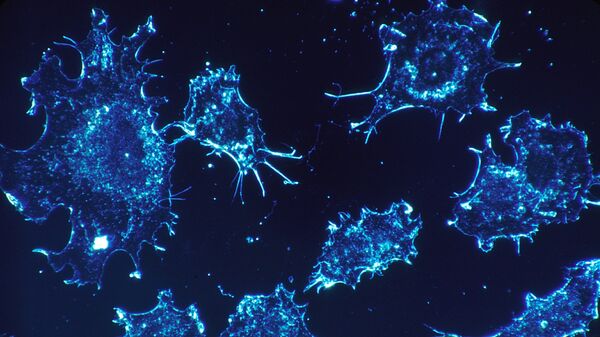Researchers have developed a new AI-powered blood test capable of detecting 50 different types of cancer and identify where the cancer originated, even before clinical signs or symptoms of the disease are observable.
The paper was published in cancer journal 'Annals of Oncology' on Tuesday. The test relies on a computer program that searches through DNA which is commonly found in blood, identifying fragments which may have originated from tumours elsewhere in the body.
"The test not only demonstrates the presence of cancer, but provides an accurate address as to the type of cancer and where the health professional should look for the malignancy," immunologist Michael Seiden told HealthDay.
Researchers used the program to target how these DNA bits have been methylated - a chemical indication of whether a gene is 'active' or 'inactive'.
In a large trial involving 6,689 blood samples, the researchers used a technique in which a computer algorithm was taught to observe DNA methylation patterns from thousands of blood samples, before giving it 1,531 samples from cancer-stricken people and 1,521 from people without cancer.
The machine compartmentalised the samples into patterns and the researchers then trained the AI to identify which pattern was associated with which type of cancer.
"Our previous work indicated that methylation-based tests outperform traditional DNA-sequencing approaches to detecting multiple forms of cancer in blood samples", Dana-Farber Cancer Institute oncologist Geoff Oxnard explained in a statement.
Due to how quickly it is able to identify the tissue from which the cancer originated, the test could eventually be used in national screenings.
The test still suffers from low detection rates of early-stage cancer as well as difficulty identifying cancers originating from human papillomavirus, but it shows a promising development for AI-based screenings.
"Based upon this successful clinical validation in thousands of patients, the test has actually now been launched for limited use on clinical trials" , Oxnard told the BBC.
"Before this blood test is used routinely, we will probably need to see results from clinical studies... to more fully understand the test performance", said Oxnard.
A transformative development
Scientists have long been searching for a simple and cost-effective blood test, with priority to early testing, which can be essential in saving lives.
The test has a 0.7% false-positive rate for cancer detection, meaning that less than 1% of people tested would be misdiagnosed. Comparatively, 10% of women are wrongly identified as having cancer in national breast cancer screenings, depending on the frequency and type of mammography performed.
However, the technique still runs the risk of providing patients with false reassurance. The test detected the presence of cancer in 44 percent of cases across 50 variations of cancer.
Detection was also more sensitive to how advanced the cancer was, with just 18 percent early-stage detections compared to 90 percent of detections of the disease in a later stage.




